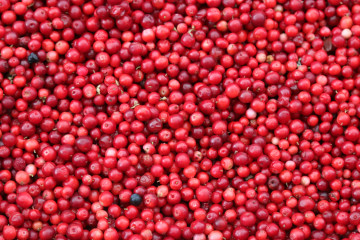Whitcomb: Rewilding; Staffing Crisis; Drivers’ Dues; Bonkers in Buenos Aires
Sunday, November 26, 2023
A trusting little leaf of green,
[A bold audacious frost;
A rendezvous, a kiss or two,
And youth for ever lost.
Ah, me!
The bitter, bitter cost.
A flaunting patch of vivid red,
That quivers in the sun;
A windy gust, a grave of dust,
The little race is run.
Ah, me!
Were that the only one
-" A Fallen Leaf,’’ by Ella Wheeler Wilcox (1850-1919), American author and poet
GET THE LATEST BREAKING NEWS HERE -- SIGN UP FOR GOLOCAL FREE DAILY EBLAST
“My religion makes no sense
and does not help me
therefore I pursue it….”
-- From “My Religion,’’ by Anne Carson (born 1950), Canadian poet, essayist, translator, classicist and professor
To read the whole poem, hit this link:
“What distinguishes America is not its greater or lesser goodness, but simply its unrivaled power to do that which is good or bad.’’
-- Mark Frankland (1934-2012), British journalist and book author
“It may be that the race is not always to the swift, nor the battle to the strong – but that is the way to bet.’’
Damon Runyon (1880-1946), American journalist and short-story writer
I hope that readers had a fine Thanksgiving, and didn’t have to travel much, in a country where travel has become increasingly unpleasant because of under-funding of transportation infrastructure and services and the decline of travelers’ patience and courtesy. Just staying home looks better and better.
xxx
It may be depressing to most people, but to me the stripping of the remaining leaves from the trees (mostly oak at this time of year) by a cold rainstorm’s wind is a hopeful sign. It means that the trees are making way for next spring’s budding. The green of moss and such herbs as thyme and chives this late in the season is also heartening. It’s surprising how tough fragile-looking plants can be.
Will El Nino warm us up this winter? How many millions will take the “you only live once’’ approach this holiday season and swim even deeper into debt to buy merchandise and “experiences”?
Do most people remember the early-childhood pleasure of building dams of fallen wet leaves in the rain and then breaking them to create a momentary torrent?
xxx
Groundbreaking for the on again, off again and on again minor league soccer stadium in Pawtucket PHOTO: State of RI
Regarding the soccer stadium being built in Pawtucket (but will it be completed?): Despite massive evidence that such costly projects rarely pay off economically for their host communities, local political leaders embrace them as panaceas, letting the business people building them take taxpayers to the cleaners. There’s a glamour associated with sports stadiums that defeats realism.
The site where the stadium is being built would have been a nice riverside park, with a playground.
But blame us, the citizens, for electing people who know little about economics, and not enough people running for office who do know a lot about economics and business. And remember that you’re voting by not voting.
Back to Nature
As consolidation continues in much of agribusiness, some cranberry bogs in New England’s main cranberry region – southeastern Massachusetts – are being taken out of production and allowed to go back to what they were – wetlands with varying levels of water and harboring a wide variety of plant and animal life.
Such “rewilding” is good for the local environment because it means that the newly liberated bogs won’t be doused with pesticides, herbicides and manmade fertilizers -- stuff that leaches variable levels of toxicity into adjoining land and water. Of course, most of us love cranberries, a “superfood,’’ whose nutrients include powerful antioxidants. But wouldn’t it be great if they could be grown more “organically”?
With rewilding, native grasses and other plants, such birds as herons and ospreys and assorted fish and frogs return to these acres, as the water flows gradually reduce the concentration of manmade chemicals.
We’d benefit from selective rewilding in many other settings to reduce human’s destructive effects on the environment. For instance, how about ripping up a lot of parking lots at abandoned malls and letting Mother Nature replant them, with a little help from us?
Beats Working?
Will the anxiety from a recession change this?
I stopped by the other week in a little town on Route 2 in Massachusetts for a sandwich. The owner, a woman I’d say of about 70, was trying to simultaneously serve me at the counter, deal with potential customers in a tiny general store at the side of the room and train a hapless-looking teenage girl on how to properly wash dishes.
The lady told me “I just can’t get help. I don’t know what the kids do these days. They just don’t seem to want to work.’’ She also complained that townspeople don’t gather to socialize or participate in civic activities as much anymore. Too busy looking at their cellphones and social media?
Well, I’m sure that plenty of young people still want to work, even in menial jobs, but I hear variations of the lady’s complaints all over the place. For example, for years, I’ve known a woman in a small Connecticut River Valley town in New Hampshire who owns an inn whose main money maker is an attached tavern/restaurant that had long thrived, including as an informal town community center.
COVID slammed her business, of course, including making it very difficult to hire people and draw customers. Now, the customers want to return, but not many employees, who, as in most such establishments, are in the 18-30-year-old range. “Where are they?’’, she asks.
This despite the fact that my friend has paid well, and tips in the tavern have tended to be generous, in part because a couple of nearby towns are affluent.
And so the tavern has been closed for months.
Decongestant
There’s sometimes much whining when “congestion pricing” for drivers is implemented, but people in large cities grow to love it. This is the system, being applied around the world, in which car drivers pay fees (at least some of which goes to improving public transit) to enter cities’ dense central neighborhoods. The fees are adjusted for the time of day, with, obviously, the highest fees during the primary commuting times.
Remember, we already pay congestion pricing – e.g., for airline and Amtrak tickets.
Congestion pricing helps clean the air by reducing car traffic and makes city life more agreeable for walkers, bikers and just about everybody downtown while opening up the streets for ambulances, fire trucks, police cars and other safety-related vehicles. It mitigates the often crushing traffic, much of it originating from car-dependent suburbia sprawl, coming in and out of cities. And it would reduce the need for so many downtown parking lots and garages in whose place housing, businesses, health and sports facilities and cultural institutions could otherwise go.
Very tight and crowded downtowns in such big cities as Boston are best for such programs.
New York City will launch its program in 2024, for Manhattan from the Battery up through Midtown. But such a program might eventually work well for dense downtowns in such smaller cities as Providence and Newport. Let’s see what happens in New York next year.
Going Crazy in Argentina
“For every complex problem there is an answer that is clear, simple, and wrong.’’
-- H.L. Mencken (1980-1956), American journalist, essayist and scholar of American English
Economically stressed, bigoted and civically lazy voters are particularly vulnerable to demagogues offering simple solutions to their woes. Look at Argentina, where angry citizens have elected a volatile and perhaps insane far-right TV pundit (here we go again!) named Javier Milei as president.
(Hell, consider how popular Hitler was in the 1930’s.)
To address Argentina’s astronomical inflation and other economic disasters, Milei promoted during his campaign such measures as abolishing the nation’s central bank and some other agencies, making the U.S. dollar the main currency, slashing social spending and cutting ties with Brazil, now that it’s no longer ruled by wanna-be fascist kleptocratic dictator Jair Bolsonaro, whom Milei reveres along with Bolsonaro soulmate Trump.
As with others of his ilk, Milei talks about “freedom,’’ even as he touts dictators and would-be dictators. Note that he downplays the crimes of Argentina’s brutal 1976-83 dictatorship.
Will Milei back off from some of his more extreme positions? That’s what often happens in such situations, sometimes fast, as it becomes clear that they won’t work. Indeed, he was already backing away last Thursday from some of his extremist plans. In any event, I predict widescale buyers’ remorse within a year, as voters realize that offering panaceas via screaming on TV isn’t the same as effective long-term governance.
Voters seem capable of anything. Many vote for corrupt and/or crazy leaders, like Trump, because they, too, are corrupt and/or crazy themselves and/or because they’re ignorant because they’re too lazy to do a little research into the facts, especially of history.
Would Have Been Stronger Bigger
Brexit and demographics are accelerating Northern Ireland’s (sometimes called Ulster) movement toward separating from the United Kingdom and becoming part of the Republic of Ireland. Religion used to be the major factor in the former’s union with traditionally Protestant Britain. But Catholics now comprise 42.3 percent of Northern Ireland’s population, compared to 30.5 percent for the Protestants (who are generally pro-Unionist), and 8.2 percent identifying as non-Christian religious.
Then there’s Britain’s disastrous decision, narrowly taken by voters in a June 2016 referendum cooked up by the Conservative Party, to leave the European Union. A majority of voters in Northern Ireland wanted to stay in the E.U.
Britain’s Conservative Party is likely to be booted from power next year. Will the Labor Party try to start the laborious process of rejoining the E.U. now that data has shown that Brexit has damaged, and will continue to damage, the U.K. economy? Would the E.U. accept the idea, after the mess of Brexit?
While a special protocol mandates that there be no customs controls or checks at the border between Northern Island and the rest of the island, that Northern Ireland is outside the E.U. single market has royally screwed up things, even as the rest of the island thrives with its E.U. membership. Indeed, people are now considerably more prosperous there than in Northern Ireland. It used to be the other way around.
You might look at a map and think that all the British Isles should be one country, given the deep cultural, language, ethnic and commercial connections among them. Sadly, the bitterness aroused by England’s often brutal colonization of Ireland, worsened by the Catholic-Protestant divisions, made that seemingly impossible. Too bad!
All this reminds me of covering Irish Republican Army fundraisers in Boston for the Boston Herald Traveler (RIP) in 1970-1971, where the angry chant was “English Out of Ireland!”

Robert Whitcomb is a veteran editor and writer. Among his jobs, he has served as the finance editor of the International Herald Tribune, in Paris; as a vice president and the editorial-page editor of The Providence Journal; as an editor and writer in New York for The Wall Street Journal, and as a writer for the Boston Herald Traveler (RIP). He has written newspaper and magazine essays and news stories for many years on a very wide range of topics for numerous publications, has edited several books and movie scripts and is the co-author of among other things, Cape Wind.








